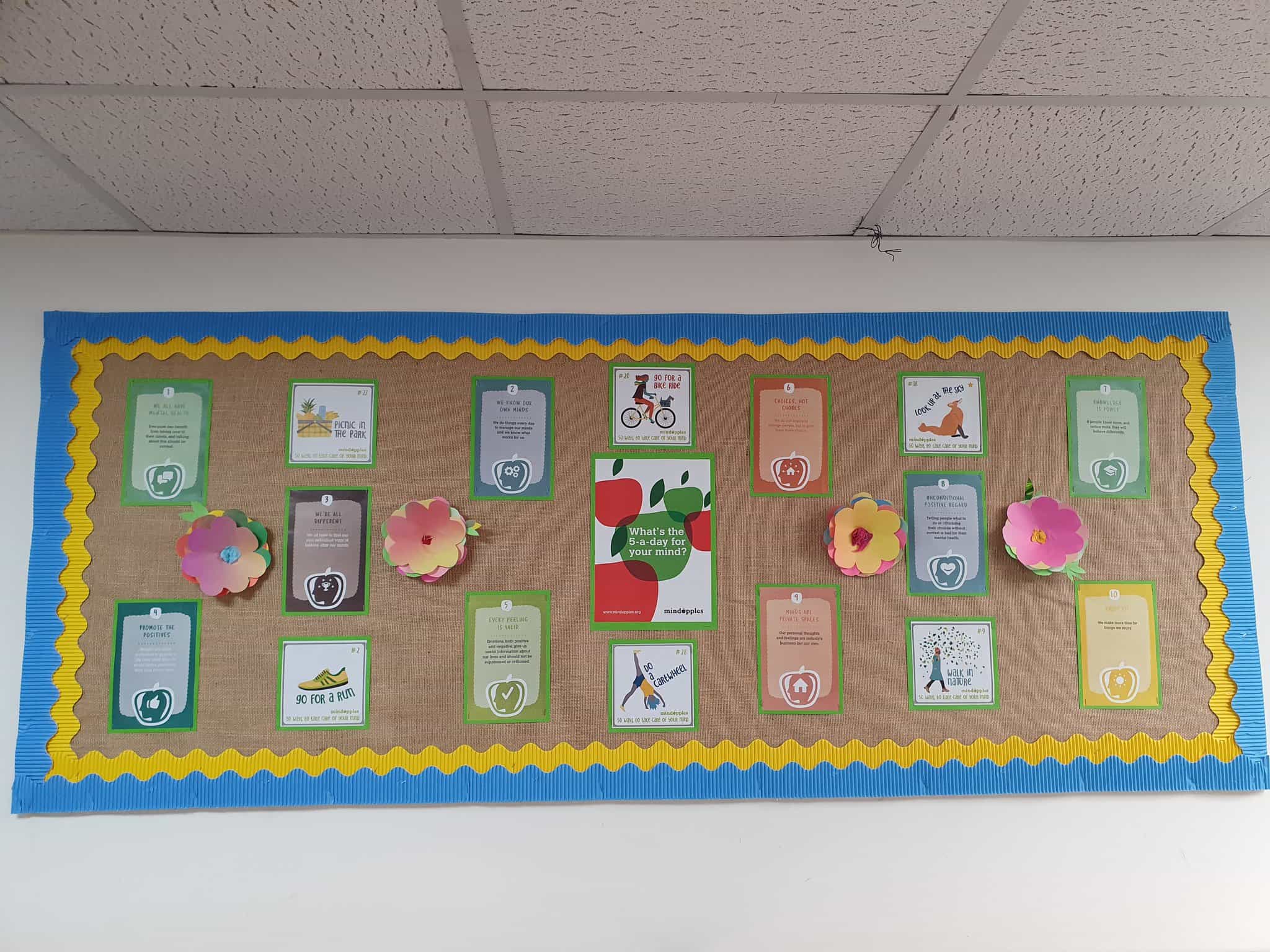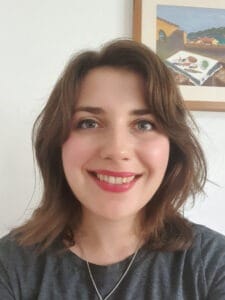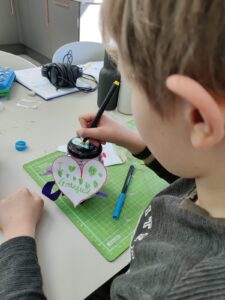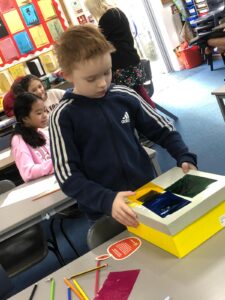
 We recently caught up via Zoom with Mindapples champion Sorcha Rudgley, who is an experienced Year 4 teacher working at St Mary’s Catholic Primary School in Bath.
We recently caught up via Zoom with Mindapples champion Sorcha Rudgley, who is an experienced Year 4 teacher working at St Mary’s Catholic Primary School in Bath.
During the last year, Sorcha has been extremely busy teaching key worker children alongside delivering remote learning for the rest of her class who were at home during the lockdowns. We asked what impact has the pandemic had on both her pupils’ wellbeing, and her own.
Sorcha told us “there’s been a huge impact that I’ve seen thinking about my class; lots of positives and negatives. So thinking about last year when this class came into Year 4, I think there was a huge impact with just anxiety in general. We were able to see a lot of anxieties with the children and they were presenting in different ways. But also their confidence had been knocked and they were finding a lot of things harder when usually they would find them OK, or even just saying that they were really struggling when they could do it.”
The children had lost some of their confidence socialising too: “just thinking about their social skills and their friendships, because they had spent such a long period of time at home maybe not seeing their friends as much in person, the children almost had to learn how to be together again in school.”
The way the children have responded has been remarkable though. In her words, “Thinking about the positives, you could see the resilience that the children had and showed and the positivity in the children from day to day, I think it’s been lovely to see in the children.”
Sorcha attended the half day Mindapples Champions course in November 2020. The subject matter was pretty new to her, and she admitted that “before training I didn’t really think too much about mental health and wellbeing. I knew it was important.” The course introduced basic concepts about promoting wellbeing, talking about mental health and building resilience, and focussed particularly on how to talk about these important topics with colleagues and young people.
When we asked Sorcha what she enjoyed most about the half day course, she said “I found it really fascinating and loved all of the quotes from different researchers and psychologists, especially some of the metaphors that were used. I really liked the metaphor of the elephant and the rider and I thought it was a really accessible way for children to think about your mind and I really liked that.”
Following the course, she now feels “more equipped to have those conversations with people who might be struggling.” She’s also been thinking more about her own wellbeing during this stressful time. “Since the training I more aware of my own mental health and I take time for myself and make sure I do the things I enjoy just to calm myself and to relax and rewind,” which is great to hear.
Sorcha said “it’s really important that we start talking about mental health and wellbeing more.”
She told us: “when I went to university I had a few friends who struggled with their mental health” and admitted “I didn’t really know what to do and can remember thinking at the time that I had never known anyone who had struggled with their mental health before and I just used to talk to them.” Looking back to that time, Sorcha realised that “I probably did know people who were struggling with their mental health, but we just didn’t talk about it. So I think being able to go on this training and finding out ways that we would be able to help each other if people are struggling and knowing what they can do to help has been really useful.”
We’ve been following up with her since the course to find out how she’s used the course ideas and materials to support her pupils and promote wellbeing in the school. She thought about how she could use the training and its concepts in school to explain how pupils and staff can all think about their minds.
Feel Good Fridays

Here are some of the things she’s done following the Mindapples course:
“Since sharing the training with colleagues, the school realised after the lockdown that everyone (staff and children) trying to teach and take part in virtual learning were all feeling really tired and drained, and someone came up with the concept of ‘Feel Good Fridays’ where everyone across the whole school would have an opportunity to feel good about themselves.”
The school used the introduction to mindapples for their first Feel Good Friday and made sure everyone in school had time to think about their own mindapples and make time to try one during the school day.
“Everyone really enjoyed sharing their mindapples – their 5 a day for their mind – and Feel Good Fridays have evolved naturally from there. It’s been brilliant and has become a regular occurrence with everyone suggesting different ideas and I think it’s a lovely communal thing now that everyone enjoys and has fun doing.”
When we asked how the children have reacted to Feel Good Fridays, Sorcha told us:
“They have just loved it! Having a whole day just to celebrate, be themselves, to spend time talking with their friends and connecting with each other, getting outside and being active. It’s such an enjoyable day that they’ve got smiles on their faces all day and we’re able to talk about the things they enjoy doing for themselves much better; it’s been a real positive. Thinking back to the first lockdown when we had the first Feel Good Friday, when we came back together at the end of the day and hearing about what everyone did for their ‘mindapples’ I think it was just unanimous that everyone said they felt great afterwards.”
 Mindapples has also created a bespoke schools toolkit to help start the conversation about mental health and wellbeing in schools, and we asked Sorcha what she thought about the Mindapples schools resources.
Mindapples has also created a bespoke schools toolkit to help start the conversation about mental health and wellbeing in schools, and we asked Sorcha what she thought about the Mindapples schools resources.
“We really loved the apples, it’s just a lovely visual way for the children to think about those things which are positive for them and as it’s such lovely quality card it makes it feel really special. I really like the tree, we have put it up in the hall so when children walk past, they can have a look. It’s really lovely and every classroom has a giant applecard on the wall, they are brilliant.”
We’re so pleased that the Mindapples Champions training is helping people in pressurised jobs like Sorcha’s, and that she and other teachers like her have been able to use Mindapples to help their pupils through such a stressful time. We couldn’t let Sorcha go without asking about her own Mindapples which are: listening to and playing music, reading, walking, cooking for others and spending time with friends and family.
If you would like to learn how Mindapples can help your school, please do please get in touch with Michele Worden at hello@mindapples.org.
